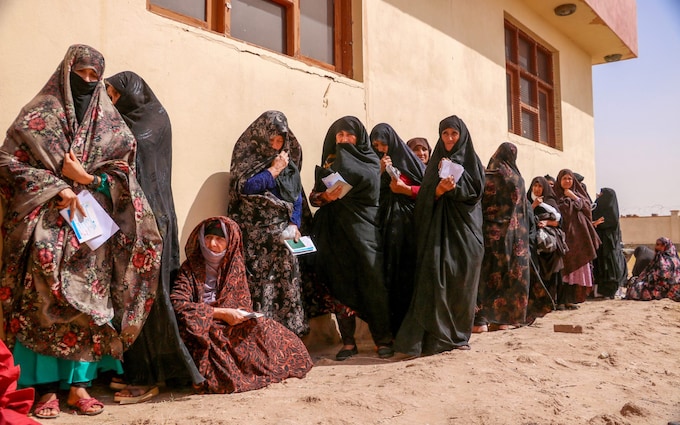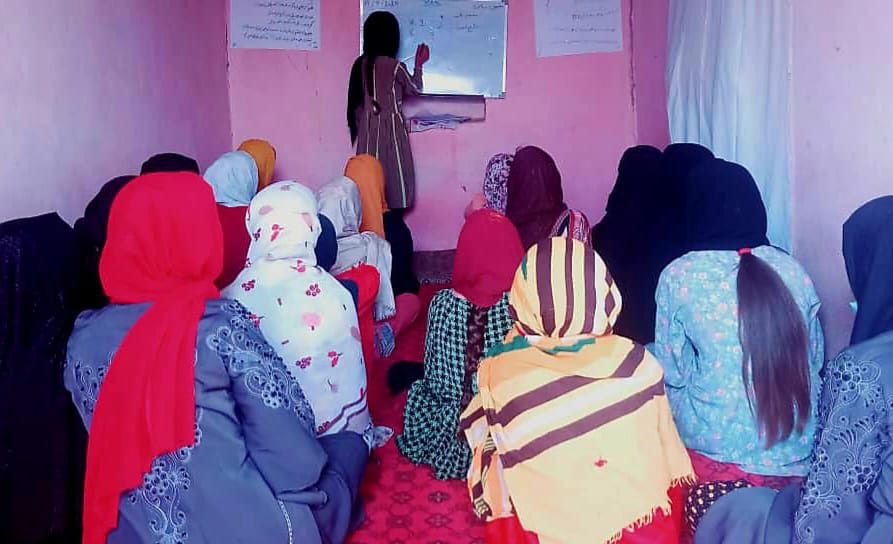In its latest attempt to enforce a hardline version of Islamic law, the Taliban has banned women in Afghanistan from hearing other women’s voices, even during prayer. The bizarre new restriction, announced by the country’s minister for the promotion of virtue and prevention of vice, Khalid Hanafi, in a rambling voice message on Monday, has left many Afghan women and human rights activists outraged and despairing.

Although the precise details of the Taliban’s ruling remain unclear, activists warn that it could effectively ban women from holding conversations with one another. In his message, Hanafi stated, “Even when an adult female prays and another female passes by, she must not pray loudly enough for them to hear.” He added, “How could they be allowed to sing if they aren’t even permitted to hear [each other’s] voices while praying, let alone for anything else.”
The new rules, which Hanafi said will be gradually implemented with “God’s help,” have been met with disbelief and anger from Afghan women. One woman in Kabul told The Telegraph, “Whatever he says is a form of mental torture for us. Living in Afghanistan is incredibly painful for us as women. Afghanistan is forgotten, and that’s why they are suppressing us – they are torturing us on a daily basis.”

Since seizing power in August 2021, the Taliban has systematically restricted women’s rights in Afghanistan. Women have already been ordered to cover their faces “to avoid temptation and tempting others,” refrain from speaking in the presence of unfamiliar men, and be accompanied by a “male guardian” when leaving their homes. The Taliban has also ordered women not to speak loudly inside their homes to prevent their voices from being heard outside, with those who defy the rules facing arrest and imprisonment.
A UN report in July 2024 said the ministry for promoting virtue and preventing vice was contributing to a climate of fear and intimidation among Afghans through its edicts and enforcement methods. The Taliban’s supreme leader has also vowed to start stoning women to death in public.
Afghan women have expressed a sense of abandonment by the international community. A former civil servant in Kabul told The Telegraph, “They [the Taliban] are waging an all-out war against us, and we have no one in the world to hear our voices. The world has abandoned us. They left us to the Taliban, and whatever happens to us now is a result of Western government policies.”

The increased restrictions have also caused discord within the Taliban’s own ranks, with a senior Taliban official telling The Telegraph of frustration from moderates with the more hardline elements of the regime. “Someone should stop the supreme leader. Many within the Taliban are angry and worried that, with everything the leadership is doing, we could lose Afghanistan as quickly as we took it,” the official said, expressing concerns that people may revolt if an alternative to the Taliban emerges.
As the Taliban continues to tighten its grip on Afghan society, particularly on women’s rights, the international community faces growing pressure to address the dire situation and protect the fundamental human rights of Afghan women and girls.



